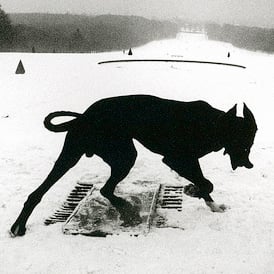News pundit claims that a proposed new law would make it 1) “illegal for store employees to confront shoplifters”, and that 2) “it is legal to shoplift” in California.
What can we make of these claims?
News pundit claims that a proposed new law would make it 1) “illegal for store employees to confront shoplifters”, and that 2) “it is legal to shoplift” in California.
What can we make of these claims?
Let’s start with claim one. This claim is specifically referencing Senate Bill 553 in California. The bill has so far cleared the Senate and is currently working it’s way through committees within the house.
I have not done a thorough reading of the bill, but there is only two parts I see that reference shoplifting, and only one in relation to confronting shoplifters. That reads:
6401.9 (b) (12) Provisions prohibiting the employer from maintaining policies that require employees to confront active shooters or suspected shoplifters.
It would prevent companies from having policies that would try and stop shoplifters/active shooters. Anecdotally, I work in retail and it’s my store’s policy to let all shoplifters be. I don’t live in California but a southern state. So even with the politics of the area it isn’t encouraged to confront shoplifters.
And in my (unasked for) opinion realistically it’s just not worth it; even if they end up stealing hundred or thousands of dollars in merchandise it’s not worth my life to fight over it. Especially at the wage I make.
For part two, it’s entirely hyperbole to completely factitious. Shoplifting in California is illegal and always has been to my knowledge. In order for it to qualify as felony shoplifting it has to be over $950 as of 2014. But it is still a misdemeanor if it’s any amount up to $950. Here is the specific text for those interested.
Good job finding the bill in question, and thanks for the sources!
You’re right - this is the key part that is being misrepresented, I think:
Provisions prohibiting the employer from maintaining policies that require employees to confront active shooters or suspected shoplifters
So the law is actually intended to prevent employers from requiring employees to confront shoplifters or active shooters, which makes much more sense. That’s not the same thing as making the act of stopping the shoplifters illegal, per se.
Does the proposed bill apply to retail employees only or employees of all kinds? I see how it makes sense to protect people like cashiers by NOT telling them to jump out in front of an active shooter and shield customers with their bodies, but what about private security/loss prevention? Say, police already do not have a duty to protect anyone in particular. If you are hired and trained as a security guard and then refuse to stop any shoplifters, does it mean you cannot be fired for that under this bill?
The section referring to the shoplifting mentions specifically all employers. So that would include anyone.
There is a very important note though. There was an update to the line to include dedicated safety personnel when it comes to dealing with suspected shoplifters or active shooter:
(12) Provisions prohibiting the employer from maintaining policies that require employees who are not dedicated safety personnel to confront active shooters or suspected shoplifters.
I imagine that this is mostly to keep safely in mind without forcing standard employees into action. Being a dedicated safety personnel most likely applies to positions like a school body guard that isn’t a police officer or someone handling security for something like an armored truck. Someone who is working as dedicated safety personnel could get fired for failing to act. A regular employee would not be fired in the same situation: at the very least legally speaking.


